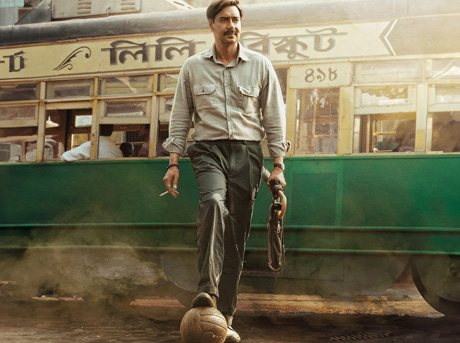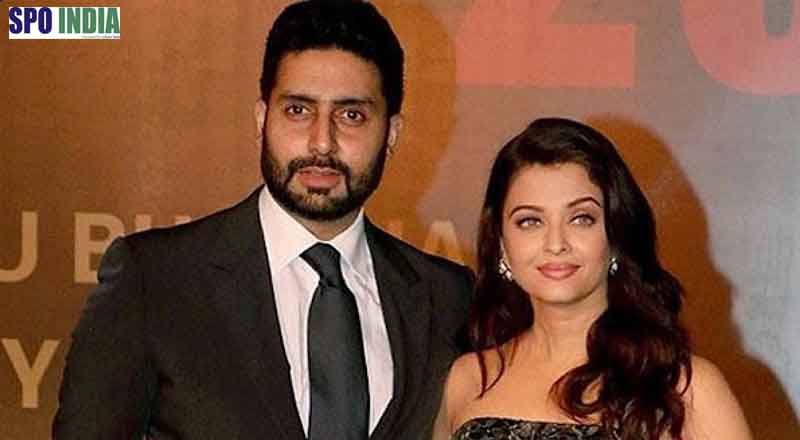Director Amit Sharma’s Maidaan, starring Ajay Devgn as Syed Abdul Rahim, the Indian football team’s coach from 1950 to 1963, is not a perfect film by many measures.
At 3.02 hours, it is way too long. Its story arc and plot are what they usually are in films about an underdog team’s impossible journey from ashes to glory, a la Lagaan and Chak De! India. The film generously uses sports film tropes we are all too familiar with— morally hideous and jealous men, smarmy officials, an apathetic minister, sports federations that are run like personal fiefdoms, and racist opponents abroad—and frames every match as a matter of honour.
Yet Maidaan, which traces the journey of Indian football from a debilitating defeat at the Olympics to its rise as a formidable team that took on France and Australia under Rahim saab, has a pulsating heart that gently gathers pace and power to end on a thrilling, moving note.
Maidaan tells an important story of a forgotten legend and a glorious chapter in Indian football. And its brilliance lies in how it tells that story.
In the film, Ajay Devgn doesn’t play a Muslim coach. He plays a master tactician and a motivating disciplinarian who changed how Indian footballers were selected, how they trained and played. Draped in ethics and warm shawls, he is the emotional core of the film around whose dedication and sharp focus a team rises.
In Maidaan’ P.K. Banerjee, Chuni Goswami and Tulsidas Balaram are not the holy trinity of Indian football, nor is Neville D’Souza the man who netted a hattrick at the 1956 Melbourne Olympics. All of them, along with Fortunato Franco, Peter Thangaraj, D Ethiraj, Tulsidas Balaram, Yousuf Khan, SS Hakim, Jarnail Singh and Ram Bahadur Chetri, are beads in a string that the film puts together to recreate a past where the golden era of football was possible only because it was also the golden era of a nation that saw beauty and strength in its diversity.
‘Maidaan’ doesn’t shout out its secular credentials, nor does it beat us with lectures on national integration. It simply shows the power of inclusivity in subtle but significant ways, in ways that conjure the spirit of that soul-stirring 1980s song, ‘Mile Sur Mera Tumhara’.
The film begins in 1952, at the Helsinki Olympics, where the Indian football team suffers a humiliating defeat: Yugoslavia 10, India 1.
“Shame” screams the headline of a newspaper in Kolkata whose balding, conceited, cigar-puffing owner, Prabhu Ghosh (Gajraj Rao), considers himself a football expert. He believes and writes that the Indian team is not worthy of competing internationally, especially not the ragtag team that Rahim has put together.
Many members of the football federation are also seething. Led by Shubhankar (Rudranil Ghosh), they accuse Rahim of favouring non-entities from his hometown, Hyderabad, and ignoring Kolkata’s famous football club heroes.
“I will take full responsibility for the next defeat, if you give me full authority,” Rahim counters and is, willy-nilly, given another chance.
He returns home briefly, where we are introduced to his kids and wife (played by Priyamani). She is learning to speak in English, hates that he chain-smokes, but likes the gifts he gets her. Rahim sets out again, to look for talent in small gullies and towns.
Every time he visits a state or a city, its name appears on the screen in its script: Secunderabad in Telugu, Kerala in Malayalam. It’s clever and delightful.
After some light moments with the players at the training camp, and practice sessions where Rahim shares tips and tricks on how to tackle opponents, how to dribble less and pass the ball faster, the team is off to the 1956 Melbourne Olympics where India beats Australia on the field and in swag. And then they are off again, to the next Olympics in Rome where India is placed in the “Group of death” — with Hungary, Peru and France. India loses two matches, but draws with France — 1-1.
Finally, after many indignities, tragedies, terrible lows and one needless song, Rahim saab and his boys are off to Jakarta Asian Games in 1962, where hostilities are high, but stakes are even higher.
Sports films are tough to direct and shoot. Either the sporting action is too little, or it’s too dull and drags the film down. Sporting biopics, especially the ones with stars at their centre, often just showcases of how hard the stars worked to gain or lose this much weight and how they puffed up this and that muscle.

Director Amit Sharma, who made the adorable 2017 film, Badhaai Ho!, setting off a trend of films set in bickering, middle-class families in small flats, has hit the big league with Maidaan.
His direction is assured and his storytelling is compelling. Though Maidaan is not Lagaan or Chak De, it is one of Bollywood’s best sports films.
What lets him down is the writing.
Maidaan’s story and screenplay — credited to eight writers — uses filmy cliches and stock characters, and I couldn’t understand why the writers could not come up with something more than humiliation as the only motivator for the footballers.
A few incidents that are shown in the film — like anti-India protests during the Jakarta games, after an Indian official criticised the hosts for not allowing Israel and Taiwan to participate — are true. But in Maidaan, every match is framed in some sort of flagrant, public humiliation, either of the footballers by foreigners, or of Rahim by Shubhankar and Prabhu, and the film’s message basically seems to be that Indian sportsmen strive for excellence only when they, their country or their coach’s honour is at stake. If it is not, then they are, you know, a bit meh.
Thankfully, Maidaan steers clear of jingoism, but in moments of the team’s victory, it is in salute mode to something higher than the game they just played.
Sharma has used the services of two teams of cinematographers and editors in Maidaan. Fyodor Lyass shot the football bits and Shahnawaz Mosani edited those. The rest of the film, which creates a nostalgic past in sepia mood, was shot by Tushar Kanti Ray and edited by Dev Rao Jadhav.
The film is strongest when it is with Devgn or on the field. Shot intelligently and edited sharply, Sharma keeps the film’s focus on its strengths and treats the rest as sideshows and surround sound.
When the film begins, the football matches are frantic. We see dismembered legs running, feet kicking, torsos falling, as if the camera were embedded in the football. It’s over-edited by design, has a dizzying effect and leaves you exhausted, with no sense of what you have watched.
But as the film progresses, the editing and pacing calm down to let the drama, on- and off-field, build up. We watch Rahim’s tactics in play, and are treated to soaring moments of individual brilliance and exciting teamplay.
This is where, in its second half, Maidaan hits a nerve and then tugs at it gently, drawing us into its world, making the team’s win our personal win, and upholding Rahim saab’s legacy a moral imperative. The last few matches in Jakarta are especially riveting and turn up the film’s emotional quotient.
Ajay Devgn as a coach whose life’s worth depends on how his team performs is very good throughout the film. Contained and quiet, he acts and speaks with his eyes and body. Especially towards the end, in Jakarta, when the film begins to lean into melodrama and nationalism, Devgn’s character stands apart as a gifted, dogged sentinel who believes in his own and his team’s worth.
Gajraj Rao and Rudranil Ghosh are both excellent as the evil plotters. My problem with Rao’s character was again the predictable arc of a hater who must, eventually, become the beholder and worshiper of genius. Despite this joyless characterisation, Rao brings some joy to his character and gives it some heft.
Priyamani is a very fine actress, but here she begins in a cutesy way. The script infantilises her character with sweet, silly English of which only one line was funny. But later, in two scenes, when the script lets her step out of the cute-girl act, she makes the screen sizzle.
Maidaan doesn’t delve much into the backgrounds and family lives of the footballers. But it gives many of them a distinct personality and all of them play their part in ways that are memorable. Amongst them, Davinder Gill as Jarnail, and Chaitanya Sharma as PK Banerjee stand out.
Few Bollywood biopics do justice to the men and women whose stories they tell.
Syed Abdul Rahim was a teacher in Hyderabad who began his football coaching career with the Hyderabad City Police, turning it into one of the best clubs in the country, and then changed the course of Indian football.
On Rahim saab’s passing, Goan footballer Fortunato Franco said, “With him, he took Indian football to the grave.”
Maidaan honours Rahim saab,
(With inputs from agencies)





